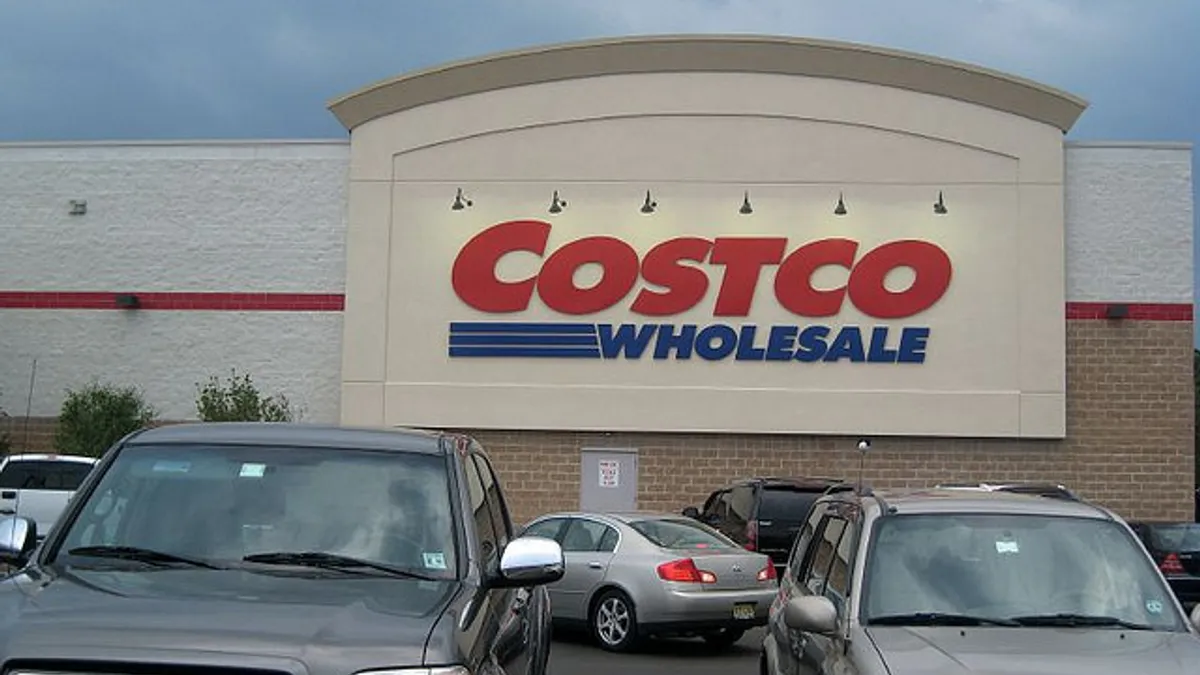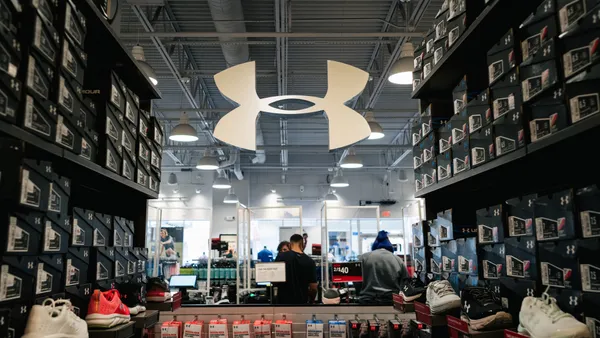Dive Brief:
-
UBS analyst Michael Lasser said Friday that Costco will likely raise its annual membership fee next year, according to CNN Money.
-
Lasser said the warehouse retailer could increase its basic annual Gold Star Membership to $60 from $55 and its Executive Membership annual fee to $120 from $110, unless competition precludes that.
-
Costco did not immediately respond to requests for comment, according to CNNMoney, though Costco CFO Richard Galanti told The Huffington Post Friday, “We have not announced if, or when, we would increase our annual membership fee.”
Dive Insight:
Annual memberships are a proven way to lock in loyal customers—evidenced perhaps most profoundly with Amazon’s Prime program—and Costco in particular makes most of its money on its membership dues, allowing the company to keep its prices down.
Costco doesn’t mark anything up more than 15% (well below the typical 25% at grocery stores and 50% at department stores). Its $55 annual membership fee enjoys a 90% renewal rate. Costco's warehouses are streamlined and it offers items in just one (usually huge) size. And despite its lean margins, the retailer is also known for offering employees superior wages, benefits and working conditions.
Retailers from Sephora to Restoration Hardware have recently adopted the premium loyalty model, though newcomer Jet, which initially based its approach on Costco’s, walked away from that shortly after its debut.
Costco’s membership increased 6% in 2015 to more than 81 million, according to CNN Money, which also notes that that vast majority (91%) of U.S. customers renewed their membership that year. Costco has worried investors in recent quarters with weaker-than-usual results, but it’s dealing with the consequences of its credit card switch from American Express to Visa, which analysts believe could ultimately attract new members and revenue.
UBS's Lasser noted that Costco has historically increased membership fees roughly every five to six years, with the last hike coming in November 2011. "If its [competition] were to dramatically slow in the meantime or if there were some major macro disruption, it might delay this increase," Lasser wrote. "But, it sounds like that's not likely."













